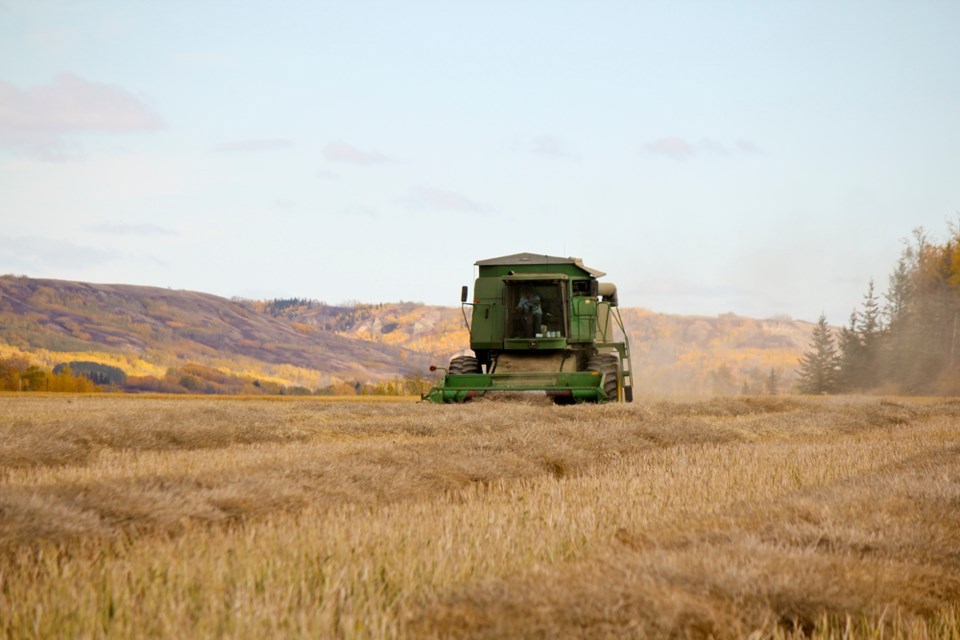B.C.’s energy minister is hinting there could be some relief, albeit a ways off, for the Peace Region’s agriculture industry as it relates to the carbon tax.
With rising fuel prices and a carbon tax on products like diesel, many producers are wondering what their future will look like.
Some, likely, thinking of getting out of the business altogether.
“I know the minister of agriculture (Lana Popham) is working on what’s called ‘regenerative agriculture’ where they’re using the soil to store carbon to enable farmers to be eligible for a carbon tax credit,” said Bruce Ralston, Minister of Energy, Mines, and Low Carbon Innovation, Thursday morning during a visit to Fort St. John. “That’s something that’s being discussed. I don’t think it’s close to a reality as a program, just yet.”
BC Grain Producers president Malcolm Odermatt, who farms near Baldonnel, points out it’s been a reality in the region for some 40 years.
“We’ve been sequestering carbon since the 1980s. So, we hope that one day we’ll be recognized for that," he said. "We’re being penalized for creating carbon. We should be getting recognized for storing it in the soil. Hopefully when we have a meeting with the ag minister in June, we can see that day coming closer to fruition.”
Odermatt would welcome a credit, adding the original idea was for it to be a profit-neutral tax.
“We see that it’s not, however, (ideally) a model where we are just trying to actually save the environment and be stewards. Something like this would be the best avenue to go about this.”
Established in 2008 by the province, the minister defends the carbon levy, pointing to its importance in addressing climate change.
“Especially after last summer with the heat dome, the fires, the flooding. I don’t think there’s anyone who isn’t convinced that climate change is a reality, and the carbon tax contributes to the long-term solution to that problem,” said Ralston.
Other than an already-announced one-time fuel rebate for British Columbians, there doesn’t appear to be any further relief in the foreseeable future when it comes to the rising price of fuel.
“The fuel prices are driven by the war in the Ukraine. It’s completely turned on its head the energy markets globally, and fuel prices have gone up dramatically not only here, but across Canada, North America, and across Europe.”
“What we’re attempting to do is respond in the best way we can. We’ve given some relief in a way through ICBC, through our good management of ICBC. There’s an ability to give a rebate to drivers which is going out this and next week,” added Ralston.
But, will it be enough for producers?
While the average car might have a fuel tank of 30 to 70 litres, one of Oddermatt’s four-wheel drive feeding tractors have tanks in excess of 1000 litres, and up to 2000.
“(And) we’re burning that within 24 hours. We are going to be burning copious amounts this spring," he said. "Between incredibly high fertilizer prices, fuel prices, parts prices, and seed, we’re going to be spending in the area of $6000 per hour. We’ve never spent this kind of money before.”
Have a story or opinion to share? Email your letters to [email protected]



